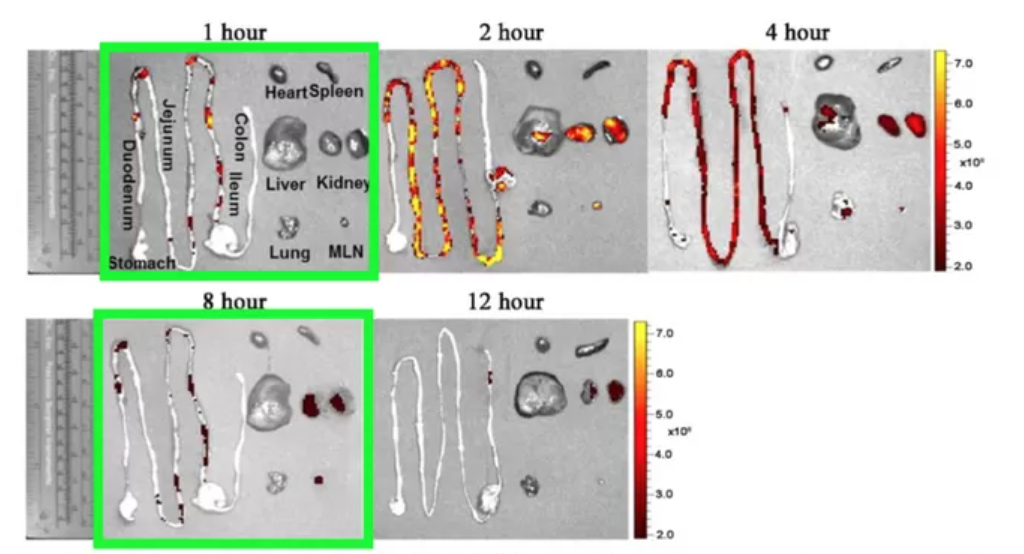
A study that found a way to deliver certain kinds of drugs more effectively in mice is being retracted today.
The study, “Molecular targeting of FATP4 transporter for oral delivery of therapeutic peptide” was overseen by Haifa Shen at the Houston Methodist Research Institute and published in Science Advances on April 1.
Several readers, including scientific sleuth Elisabeth Bik, posted concerns about the article’s images on PubPeer within weeks of the paper’s publication. The concerns involved overlapping and duplicate images, and this gem:
Could the authors clarify if some of the mice had two sets of major organs, please?
The retraction notice says:
After publication, readers identified duplicated image regions in multiple figure panels. Alerted to these concerns, corresponding author Haifa Shen’s institution performed a review of the supporting data and research records and determined that the research was not performed according to expected standards and was not reliable.
It also states:
As a result, 7 of the paper’s 8 authors have agreed the paper should be retracted, except for lead author Zhenhua Hu, who did not respond to his coauthors’ communications. This is the third retraction at Science Advances since its launch in 2015.
(As an aside, while we’ve seen journals mark their first retractions, we are not sure we’ve ever seen a retraction tracker like that in a notice before. Here’s our coverage of the first retraction from Science Advances in 2016, and coverage by the Los Angeles Times of the second, from last year.)
One of the paper’s authors is Mauro Ferrari, who abruptly left his post in April after three months as president of the €2.2 billion European Research Council.
Bik wrote in email to Retraction Watch that she wasn’t the first to raise concerns on the paper and said:
Some of these duplications were overlapping panels, but one of the concerns (in Figure 2) pointed out that the same structures appeared to be visible multiple times within the same photo. That suggested that these duplications might have been done intentionally. Because this paper had been published in Science Advances, a journal with a high impact factor, that caught my attention. So I took a closer look at the paper to see if I could find more image concerns. I quickly found overlapping images between the Jejunum and Ileum panels in Figure 3 as well as other problems in the supplemental figures.
Shen, who heads a cancer therapy lab at Houston Methodist, also contributed to a 2015 study and 2019 study which PubPeer users flagged for similar concerns of image overlap or duplication. Neither he nor his institution responded to email requests for comment.
Bik added:
The decision to retract this paper is a good one. Because this paper has so many image concerns, there is little trust left in the other data presented in this paper.
Like Retraction Watch? You can make a tax-deductible contribution to support our work, follow us on Twitter, like us on Facebook, add us to your RSS reader, or subscribe to our daily digest. If you find a retraction that’s not in our database, you can let us know here. For comments or feedback, email us at [email protected].
I just realized one of the co-author is a former student of mine from about 10 years ago… 🙁